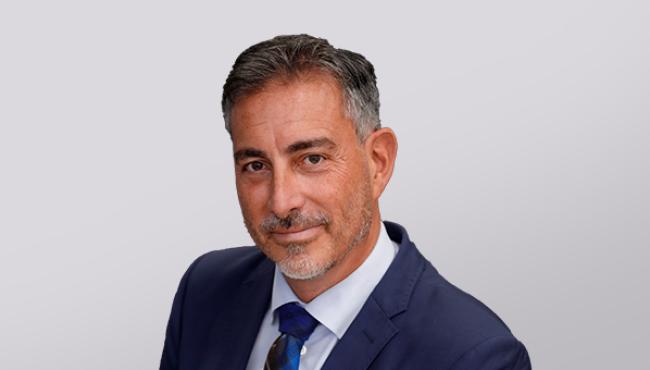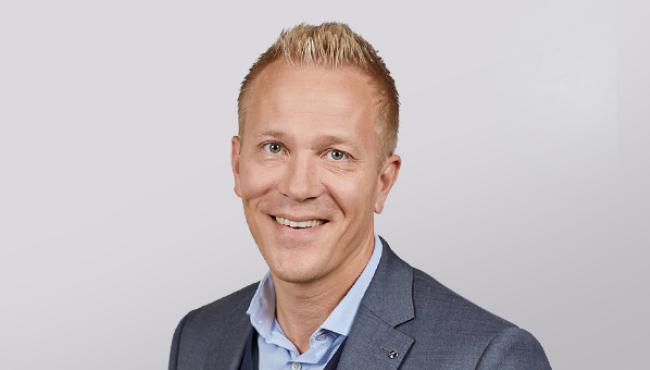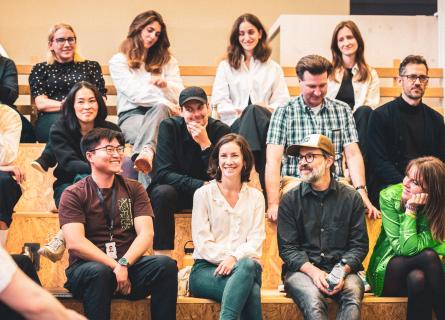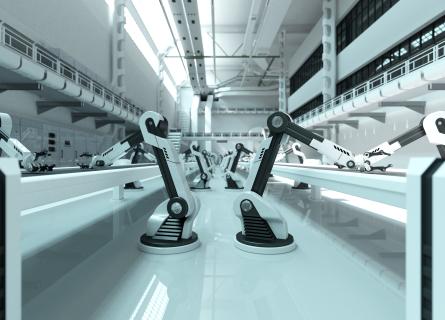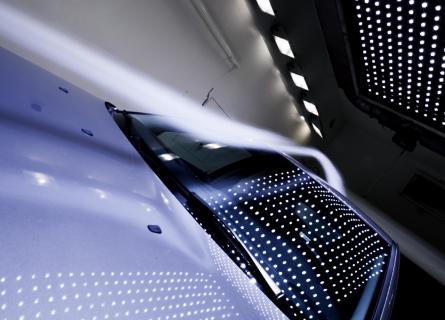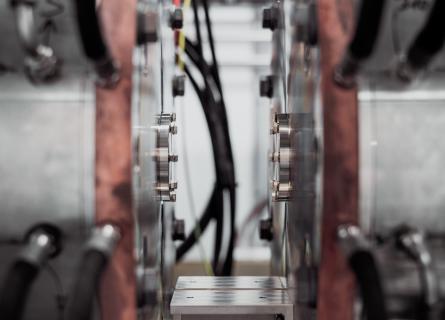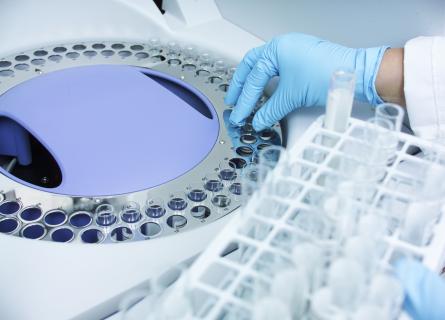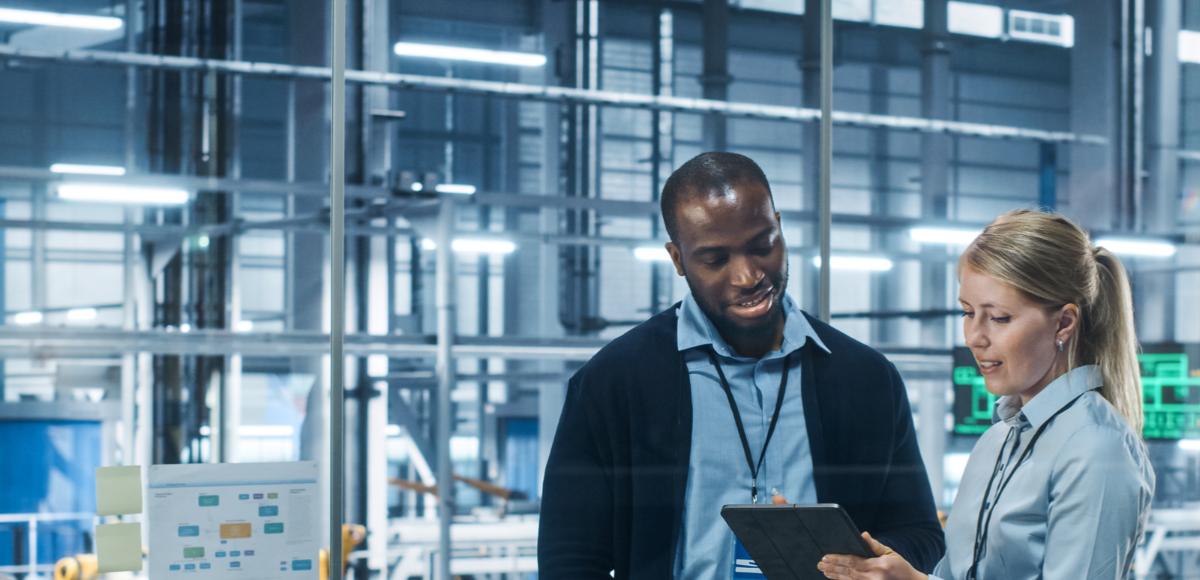
A closer look at AFRY's leadership in R&D innovation in Sweden
Tackling challenges and embracing trends
With a track record of over 500 projects and 3,000,000 R&D hours invested last year, AFRY is at the forefront of R&D innovation in Sweden. In this interview, our Head of Business Development & Sales, Johan Andinsson, explores the significant role of R&D across various sectors, the challenges, and the emerging trends shaping the technological landscape.

What are some major challenges you see within the R&D industry today, and how is AFRY working to overcome them?
Today, one of the significant challenges in the R&D industry is the need for shorter timelines and greater flexibility. The industry also faces several other significant challenges, such as the increasing complexity of projects, driven by advancements in technology and rising client expectations.
To address these challenges, we're taking a proactive approach to continuously refine our processes and adopt new methodologies. This includes embracing agile development practices that prioritise flexibility, collaboration, and rapid iteration.
Moreover, we recognise the importance of automation in streamlining our workflows and enhancing efficiency. By leveraging automation tools and technologies, we're able to automate repetitive tasks, accelerate time-consuming processes, and reduce the risk of errors. This not only frees up valuable time and resources but also allows our teams to focus on higher-value activities that drive innovation and differentiation.
Another challenge that we're addressing is the growing demand for environmental responsibility and sustainable solutions. There's a heightened emphasis on developing eco-friendly solutions and minimising products' environmental impact. At AFRY, we're actively working to integrate sustainability into every aspect of our R&D processes and deliver solutions that not only meet the needs of our clients but also contribute to a more sustainable future.
What emerging trends do you see within the R&D industry that could impact how we work and develop new products and solutions in the future?
Emerging trends such as digital simulations, VR, and AI are to revolutionise the R&D landscape. These technologies offer new avenues for testing, verification, and efficiency enhancement.
Digital simulations, for instance, allow us to model and simulate complex systems and scenarios with accuracy and speed. This capability not only accelerates the design process but also enables us to revise and optimise solutions more efficiently, ultimately leading to faster time-to-market and cost savings for our clients.
Similarly, virtual reality presents exciting possibilities for immersive design experiences and collaborative prototyping. By leveraging VR technology, our teams can visualise and interact with prototypes in virtual environments, facilitating better communication and decision-making throughout the development process. This not only enhances the quality of our solutions but also fosters greater client engagement and satisfaction.
Furthermore, artificial intelligence is increasingly being integrated into R&D workflows to analyse vast amounts of data, identify patterns, and generate actionable insights. From predictive analytics to machine learning-driven optimisation, AI-powered tools are enabling us to uncover hidden opportunities and drive innovation in ways that were previously unimaginable.
Do you see any shifting client needs or industry-specific trends that could affect a company's R&D operations and long-term product development?
One key trend is the increasing demand for personalised solutions fueled by a deep understanding of user behaviors across various products and services. This trend underscores the importance of data-driven decision-making and customer-centric approaches in R&D operations.
Moreover, in the B2B sector, efficiency remains a top priority for clients. Companies are continuously seeking innovative solutions that streamline operations, reduce costs, and enhance productivity. This emphasis on efficiency not only shapes the direction of R&D efforts but also drives investments in new technologies and process optimisations.
However, perhaps the most impactful trend influencing both consumer and B2B markets is the growing focus on sustainability. With increasing concerns about environmental issues, there's a heightened demand for eco-friendly products and solutions. This trend is reshaping R&D operations, prompting companies to integrate sustainability into every stage of product development – from design to manufacturing and beyond.
Could you provide insights into AFRY’s R&D efforts and what distinguishes it from other market players?
Our R&D services stand out due to our comprehensive approach and extensive experience across a broad range of sectors. We operate in automotive, telecom, med-tech, defence, mining and manufacturing, gaining insights into a variety of different challenges, whether it’s regarding technical maturity, development speed, sustainability, or new regulations. What sets us apart is our scale and readiness to guide our clients through these challenges. We bring a holistic perspective, offering guidance not only on technical aspects but also on business strategy and production. This comprehensive approach, combined with our vast experience, distinguishes us in the market.
How do you view AFRY's role as Sweden's largest R&D organisation, and what significance does it hold for our clients?
Our role as Sweden's largest R&D organisation is significant for our clients in several ways. With a workforce of 19,000 engineers and designers worldwide, we are uniquely positioned to tailor solutions to our clients' specific needs. Our size and expertise enable us to benefit from cross-sector experiences, allowing us to leverage diverse perspectives and approaches to problem-solving that few others can match. Our extensive experience gained from decades of diverse assignments proves highly beneficial to our clients. We have tackled a wide array of challenges at scale, allowing us to offer valuable insights and solutions.
In essence, our role as Sweden's largest R&D organisation means we have the resources, expertise, and experience to help our clients overcome any challenge they may face. Whether it's developing cutting-edge technology, optimising processes, or navigating evolving regulations, we are committed to delivering results that drive our clients' success.
How do you see our R&D work contributing to driving innovation in Sweden?
Our R&D work plays a crucial role in driving innovation in Sweden. We combine financial, technical, and regulatory expertise with a touch of design and branding. This holistic approach enables us to develop innovative solutions that effectively address complex challenges. Furthermore, our international experience across multiple markets allows us to bring diverse perspectives and insights to the table, enriching the innovation landscape in Sweden.
Through our expertise and collaboration, we have delivered innovative solutions that enhance the performance and success of our client's endeavors. While not all cases may be publicly available, our track record speaks volumes about the positive outcomes we consistently strive to achieve for our clients.
For example, we have worked with Volvo over several years to enhance transport efficiency, which actually has contributed to a change in legislation in Sweden where both the permissible length and weight of vehicle combinations have been increased. We have also collaborated with Stena Recycling and designed a large-scale recycling plant for electric car batteries in Halmstad, Sweden. Furthermore, we have deepened our partnership with Hägglunds to provide advanced engineering solutions for the company’s CV90 platform, which is a series of military vehicles. These are just a few examples of the 500+ projects we undertook last year, each contributing to our commitment to R&D innovation.

